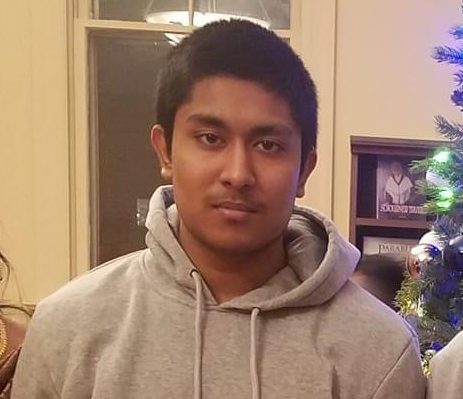[ad_1]
As new details emerge on a teen’s fatal shooting by an NYPD officer on Wednesday, outrage has bubbled up over the tactics used by the officers who responded to a 911 call made by the teen himself.
Win Rozario’s death has also raised broader questions about how the city responds to mental health emergencies, fueling criticism that the city’s use of police officers as de-facto mental health emergency response teams is at best clumsy, and at worst, deadly.
“This could not have been a more stark example of something that should not happen,” said Ruth Lowenkron of New York Lawyers for the Public Interest. “The young man himself called 911 for help. Here’s someone thinking he’s going to get help and feel better, and instead he’s killed within moments of the police arriving. There really aren’t words to describe it.”

His death is the 20th killing of a mentally ill person by police in the city since 2015, Lowenkron said — a number that doesn’t include those who’ve been injured, arrested or committed to a hospital over family’s objections.
Wednesday’s incident played out over just a couple minutes, according to police.
Both the 19-year-old Rozario, in the throes of a mental health episode, and his mother called 911, a police official said.
This wasn’t the first time — cops had twice before responded to calls from the family. In October, Rozario had been transported to a hospital after medical personnel had responded to the home.
Around 1:40 p.m., police arrived at the residence and knocked at the door. Within two minutes after they were let in, Rozario had the scissors in his hand, a police official said.

“It just spiraled out of control,” the official said.
The officers tasered him, and his mom hugged him and pulled out one of the prongs, police said. Rozario then picked up the pair of kitchen scissors and came at the cops — who then shot at him, according to police.
The NYPD won’t name the officers or how many shots each fired.
The incident is still being investigated and no body-cam footage has yet been released. It’s unclear if the officers have been involved in prior shootings. Neither have been disciplined, a police official said.
Civil rights attorney Joel Berger, who spent nearly a decade as an executive in the New York City Law Department monitoring police misconduct, said the incident “doesn’t add up.”
“Two cops ought to be able to disarm or at least resolve the situation without having to shoot the kid dead,” he added. “It’s a household pair of scissors.”
Berger urged folks suffering mental health crises to not call the police, saying the police should be “the very last resort.”
Advocates say Rozario’s death highlights the potentially devastating consequences of police responses to mental health emergencies.
“Win called 911 in mental distress, but instead of receiving the help he needed, he was shot and killed at his home by police after an altercation,” said Councilwoman Lynn Schulman, who represents Ozone Park. “Instead of a police response, mental health professionals should have been sent to him.”
The Behavioral Health Emergency Assistance Response Division, or B-HEARD, was one solution to this. The program aims to deescalate crises by sending teams of FDNY EMTs, paramedics and social workers to respond to mental health emergencies instead of cops.
“That would be the perfect instance where this health response would come in to deescalate the mental health crisis,” Lowenkron said. “If they felt there was any severe imminent threat of injury then they would call the police in as backup.”
Mayor Adams pledged in March 2023 to expand B-HEARD citywide — but rounds of budget cuts have halted any expansion of the program beyond the 31 precincts it currently serves. The city currently has no plans on expanding it, a spokesman said.
The program never reached Ozone Park, where Rozario’s fatal shooting by cops occurred.
“It doesn’t need to be this ultramilitarized, kind of harsh response,” said Jordyn Rosenthal, director of advocacy at Community Access.
Other services, Rosenthal said, are also lacking.
“This is an issue where a Band-Aid fix is not going to make a difference. We need stitches or reconstructive surgery,” Rosenthal said, adding that more mental health services like respite centers and clubhouses are needed.
With Julian Roberts-Grmela
[ad_2]








